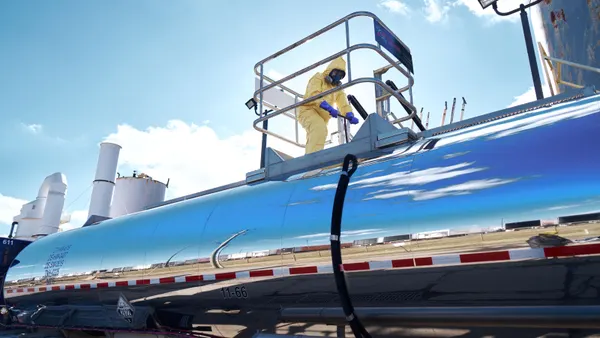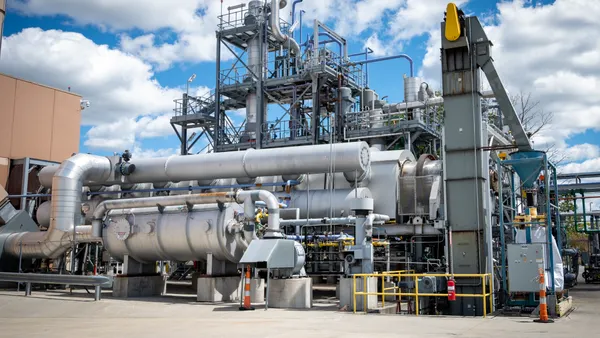Dive Brief:
- The Minderoo Foundation, a philanthropic group founded by Australian billionaire Andrew Forrest, is contributing $300 million to a new plastic waste initiative called Sea the Future. The goal is to raise $20 billion annually for "global recycling, collection and environmental remediation."
- Primary funding for the industry-focused initiative is expected to come from a financial contribution paid by manufacturers of virgin plastics produced with fossil fuels. The contribution would not apply to plastics containing recycled content, making them a cheaper feedstock than virgin.
- So far, no resin manufacturers have signed on for the voluntary campaign. Companies including Coca-Cola, Unilever, Dow and Walmart, along with the Ellen MacArthur Foundation, are listed as expressing initial interest. A Minderoo spokesperson said it will take time to set up the governance and audit structure, indicating no specific deadline.
Dive Insight:
Sea the Future focuses on the same problem as other campaigns — plastics entering the environment as waste — but takes a different approach. Many other campaigns seek to ban many types of plastic and thus reduce production. This one aims only to eliminate some plastics, while ensuring most remain in the global supply chain and are treated as a valuable commodity. This market-based strategy, versus a regulatory one, is seen as a way to drive demand for recycled plastics throughout the value chain and increase collection efforts – especially in developing nations.
"Ad hoc solutions, like banning a plastic straw, are not going to be sufficient. We need a major intervention, and we believe this is a major intervention," Bryant Plavsic, director of plastics for Minderoo, told Waste Dive.
Plavsic says that although plastics are quite recyclable, their recovery rates are far lower than other commodities such as aluminum.
"The difference is there's value in aluminum. It's valuable to recycle so it gets done. Plastic is not economic to collect and take through the process of sorting, cleaning and recycling. We want to fundamentally change the economics of that," he said.
Chemical recycling is viewed as one of the prime plastics recycling sectors that could benefit from this initiative. A report from Closed Loop Partners has estimated $120 billion worth of revenue potential in North America for the sector, which has begun gaining steam in recent years with emergence of new projects.
Last year, Oregon-based Agilyx started depolymerizing polystyrene (PS) — especially foam — into monomer oil that can be made into new PS-based products. Brightmark Energy is building a plant in Indiana where mixed plastics will be processed into ultra-low sulfur fuel and commercial-grade wax. Renewlogy's upgrades to its Utah facility, where it processes mixed plastics collected curbside into synthetic fuels, are expected to expand collection programs in neighboring Idaho. Renewlogy has also been awarded a municipal contract in Phoenix to turn recovered mixed plastics into fuel.
Although chemical recycling is evolving and growing in popularity, it's still not considered an economically competitive alternative to producing virgin materials derived from fossil fuels. Last year, an Agilyx representative alluded to such challenges when discussing the company's business model with Waste Dive. He noted that the company turned its focus away from making synthetic crude oil when commodity prices dropped considerably several years ago.
Sea the Future’s potential to transform the plastics recycling sector is tied to its ability to quickly gain traction, particularly in the developing nations where much of the world's waste plastic enters the marine environment, and whether the initiative can get enough virgin resin manufacturers on board with the voluntary fee.
Correction: A previous version of this article listed Coca-Cola, Unilever, Dow, Walmart and the Ellen MacArthur Foundation as partners. They are not official partners.










